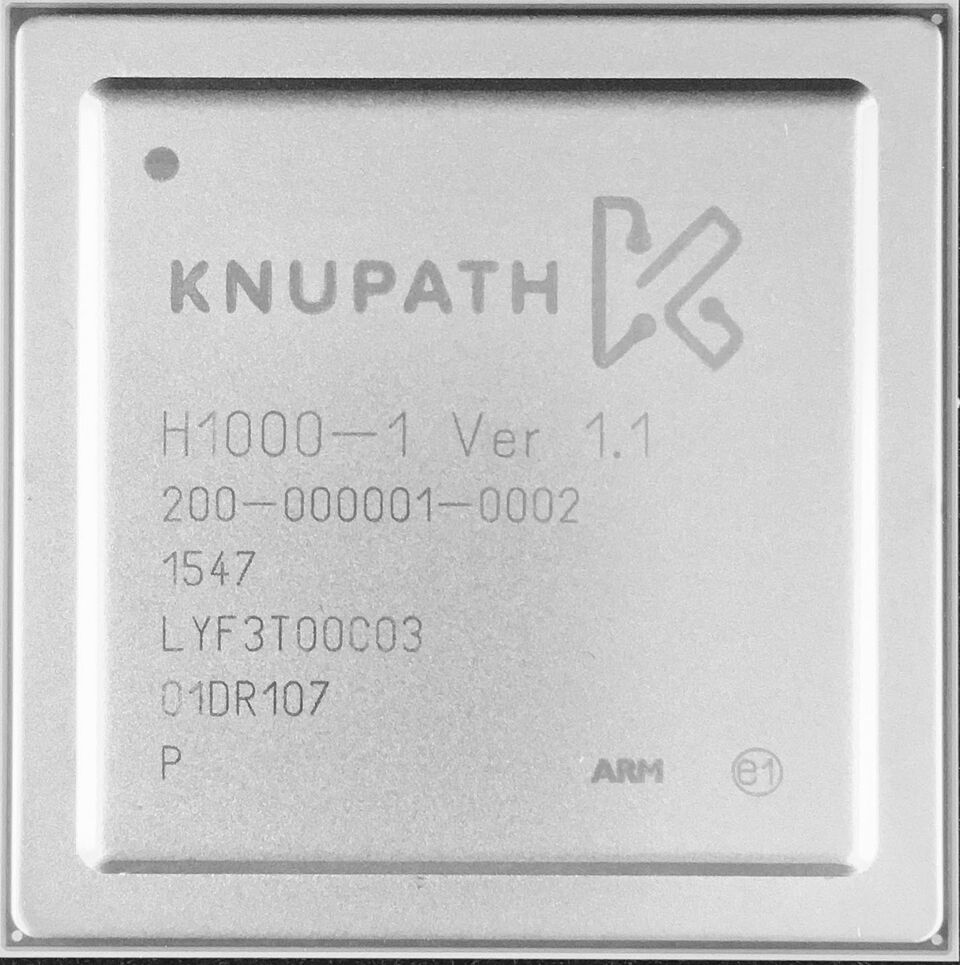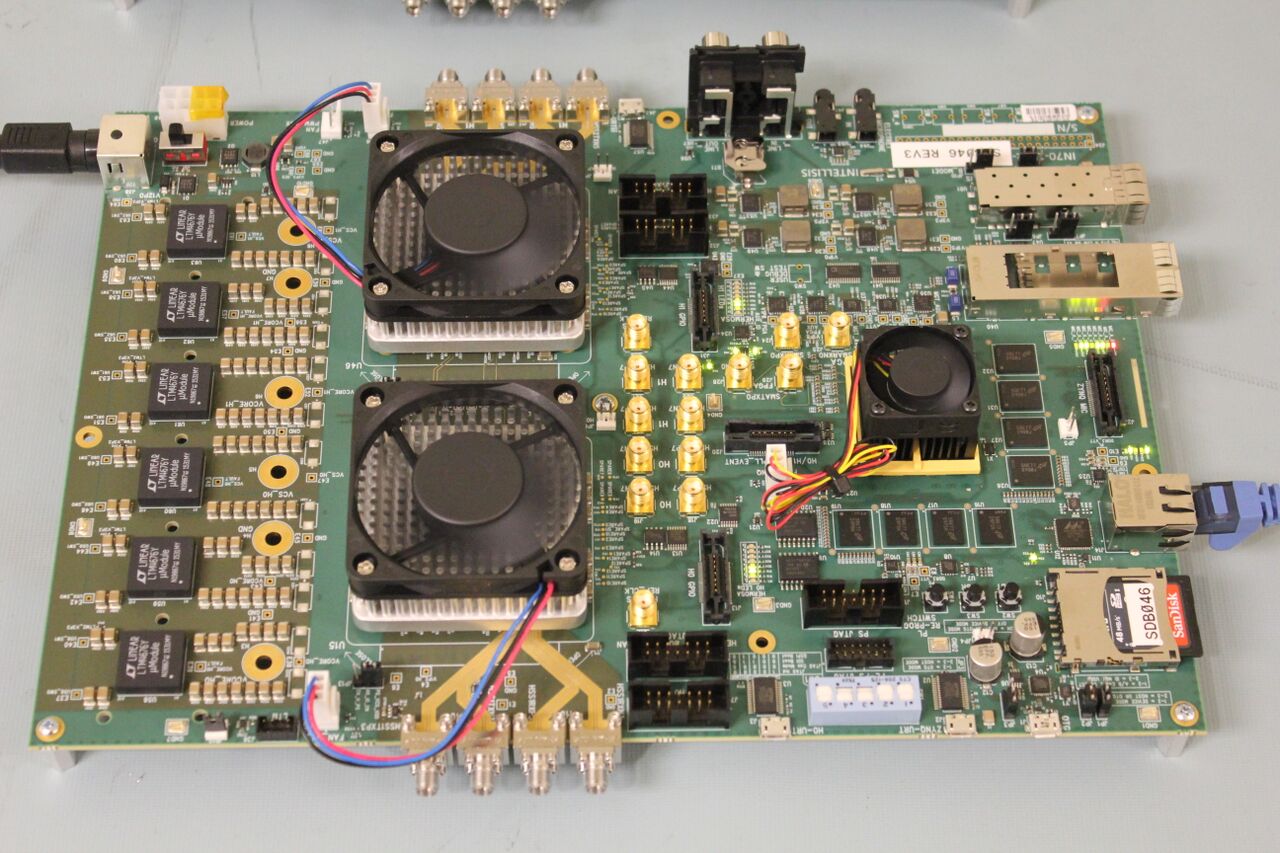KnuEdge Announces 'KnuVerse' Voice Authentication Technology And 'KnuPath' Neural Chip
KnuEdge, a San Diego, CA cloud-based speech technologies company founded by Dan Goldin, who was NASA's chief spanning three presidential administrations, unveiled its KnuVerse voice authentication technology, as well as KnuPath, a custom chip that can greatly accelerate voice recognition.
KnuVerse - Voice Authentication In Any Environment
The company claimed that KnuVerse is a “military-grade” voice recognition and authentication technology, which has actually been used in military battle environments. It can work in any type of noisy environment or even when multiple people are talking nearby.
KnuEdge uses rather sophisticated algorithms to identify a person’s unique voice print, which should make it hard for someone else to clone and use to gain access to their data.
Because KnuEdge uses cloud-based speech recognition technology, that also means users’ voice prints are kept on the company’s servers, or potentially on an enterprise’s customers’ secure location. However, these locations could still be breached. To further protect against either data breaches or a sophisticated adversary trying to clone someone’s voice print, KnuEdge also offers an additional layer of security with multi-factor authentication based on visual cues.
Users can associate certain words with the numbers in a PIN password as well. An attacker would have to replicate both the unique voice print of a user that’s created by the KnuVerse system as well as know which words the users chose to associate with their PIN codes. If notified by a breach, users could also change their word association and PIN code, even if attackers hold their voice prints.
At Knurld.io, developers can also get access to the company’s voice authentication APIs, which can be used in any application.
KnuPath - Hardware Accelerated Voice Recognition
As it was working on its voice recognition and authentication technology, the KnuEdge team started thinking about what kind of hardware would be the most efficient for its algorithms. That’s how the team started developing the design of its KnuPath biology-inspired neural chip architecture.
Get Tom's Hardware's best news and in-depth reviews, straight to your inbox.
KnuPath is an ASIC-like chip architecture, not unlike Google’s recently announced TPU chip, meant to accelerate certain types of algorithms beyond what’s possible with CPUs and GPUs. However, KnuPath can be also be used to augment other systems that contain CPUs and GPUs in a heterogeneuous way through its LambdaFabric technology, which can support up to 512,000 devices.
One of the main advantages of KnuPath’s architecture is also its low latency both inside the chip, from register to register, which can be as low as 6ns, but also across the chip with a latency of 62ns. From rack to rack the chips have a latency of only 400ns.
The company’s KnuPath-based “Hermosa” chip contains 256 processing cores (tDSPs), grouped in four super-clusters of eight chip clusters each, with each chip containing eight tDSPs. Hermosa has access to 72MB of embedded memory with a bandwidth of 3.7GB/s that can scale up as more processors are added, and it can support external RAM as well.
The Hermosa chip also has support for 16 high-speed serial ports for a total bi-directional bandwidth of 320Gbps. The chip can achieve 256Gflops/s at a power consumption level of 34W.
The company is already shipping a developer kit, with mainstream availability of its KnuPath chips targeted for Q3 this year. KnuEdge said that the customers interested in KnuPath could be anyone that would normally use GPUs and machine learning to train and infer their own voice recognition algorithms. The company's own KnuVerse voice recognition technology can work on any other device, although the KnuEdge team expects to combine KnuVerse and KnuPath in the future for better results.
Lucian Armasu is a Contributing Writer for Tom's Hardware. You can follow him at @lucian_armasu.
Lucian Armasu is a Contributing Writer for Tom's Hardware US. He covers software news and the issues surrounding privacy and security.
-
bit_user ReplyKnuPath is an ASIC-like chip architecture
What's an "ASIC-like chip architecture"?
ASIC is an implementation method - not an architecture. The same design could be implemented on a FPGA, if it will fit.
256 GFLOPS in 34 W doesn't sound particularly impressive. Maybe they had trouble finding mil-spec parts that were fast & efficient enough, but it seems like both Movidius and Tegra TX-1 are more efficient.
Neither has 40 GB/sec of PCIe, though. It's kinda hard to see why they'd need so much I/O bandwidth, unless you need to interconnect a bunch of these to do anything useful. In that case, I'd have to ask: why not just use a bigger GPU?
-
SillieAbbe They seem to be misinformed. Whether voice or fingerprints, biometrics should not be activated if you are security-conscious.Reply
It is now getting known that the authentication by biometrics usually comes with poorer security than PIN/password-only authentication. The following video explains how biomerics makes a backdoor to password-protected information.
https://youtu.be/5e2oHZccMe4


